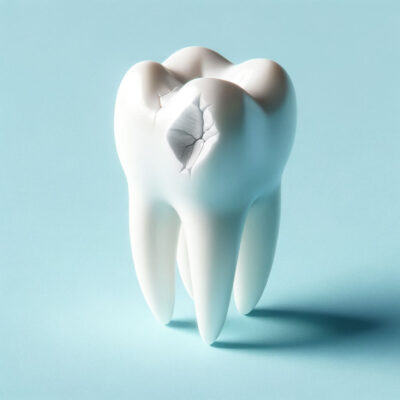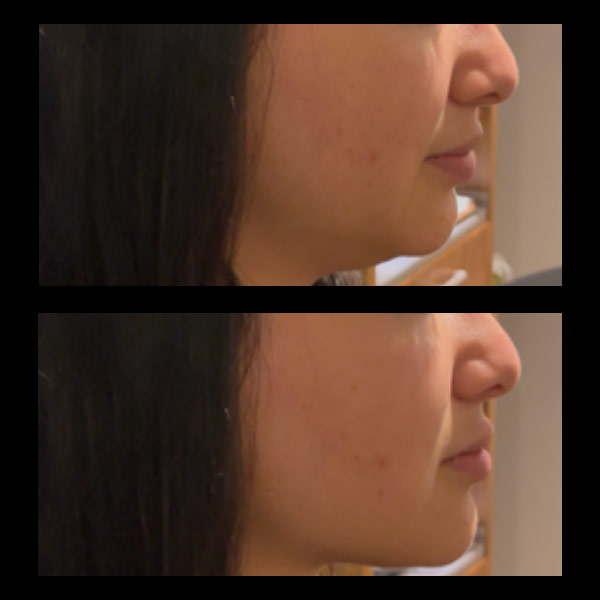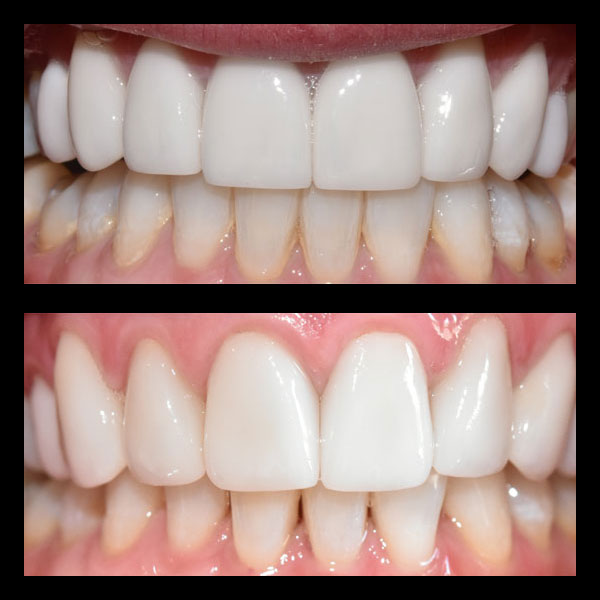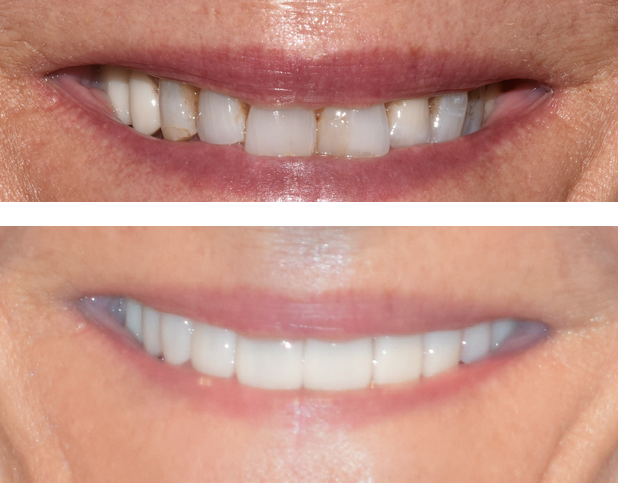 Dental emergencies can happen at any time, often resulting from accidents or sports injuries. Knowing how to respond can make a significant difference in dental outcomes. A chipped or cracked tooth is more than just an inconvenience; it’s a health concern that requires immediate attention. Knowing the severity of the damage, first aid steps, available treatment options, and aftercare can be pivotal.
Dental emergencies can happen at any time, often resulting from accidents or sports injuries. Knowing how to respond can make a significant difference in dental outcomes. A chipped or cracked tooth is more than just an inconvenience; it’s a health concern that requires immediate attention. Knowing the severity of the damage, first aid steps, available treatment options, and aftercare can be pivotal.
Chipping or cracking a tooth can happen to anyone. Beyond mere cosmetics, large cracks can affect the tooth’s root and cause pain or sensitivity. Professional dental help is necessary to prevent further issues such as infection or tooth loss. Here at Incredible Smiles, we understand the importance of quick and effective action in preserving a damaged tooth.
First Step is Assessing Tooth Damage
The first step after a dental injury is to assess the situation calmly. Unexpectedly chipping or cracking a tooth can trigger varying degrees of discomfort or pain, depending on how severe the damage is. Determine if there’s severe pain, loose teeth, or broken pieces. If the damage seems severe, or if there’s heavy bleeding or pain, it’s crucial to seek professional dental care immediately.
Distinguishing Between Minor and Major Damage
Minor chips typically affect only the outermost layer of your tooth, the enamel. These may not cause discomfort and can be hard to notice unless a sharp edge is felt with your tongue. However, these minor chips might lead to sensitivity to hot or cold, as the enamel safeguards the more sensitive layers beneath it.
On the other hand, larger cracks can be much more severe, possibly affecting both the enamel and the softer dentin layer underneath. The dentin layer is home to tiny tubes that connect to the tooth’s nerve. If it gets damaged, you might begin to experience pain, particularly when consuming hot or cold foods and drinks.
The Risks of Ignoring Dental Damage
Even a small chip or crack may not cause immediate discomfort and thus can be easy to overlook. However, neglecting to treat it can lead to more serious issues later on. The damaged area can allow bacteria to invade the inner layers of your tooth, potentially causing a painful infection or abscess.
More severe cracks that reach the tooth’s root can also trigger considerable discomfort. If a crack extends into the tooth’s pulp, the area housing the nerves and blood vessels, it could result in a serious condition known as pulpitis. It often results in intense pain and necessitates immediate dental attention. If neglected, it could lead to tooth loss.
If you suspect you’ve chipped or cracked a tooth, don’t delay. Seek out a dental expert to help address the issue quickly and effectively.
First Aid for a Damaged Tooth
Swift action can make a difference in dental emergencies like a chipped or cracked tooth. Your immediate actions can ease pain, reduce swelling, and minimize the risk of infection until you receive professional help.
- Start by rinsing your mouth with warm water to cleanse the area and remove any debris and bacteria that might cause further damage or discomfort. After the first 24 hours, rinsing with a salt water solution (1/2 teaspoon of salt in a cup of warm water) can help keep the area clean and reduce swelling.
- Apply a clean piece of gauze to the area and press gently until bleeding stops if there’s any.
- To reduce swelling and numb the area, apply a cold compress to the cheek or lips over the affected area. Use a clean cloth or ice pack, and apply it for 20 minutes on, then 20 minutes off.
- Use OTC pain relievers such as ibuprofen or acetaminophen for temporary relief. Avoid aspirin which can cause bleeding.
- Until you can see a dentist, avoid chewing on the side of the injured tooth. Stick to soft foods and avoid anything that is too hot, cold, or sugary, as these can trigger pain.
- Keep your head elevated while sleeping to help reduce swelling.
While these steps manage immediate pain and discomfort, they don’t replace professional dental care. Even if the damage seems minor, it’s important to have a dentist check the tooth to prevent further damage or infection. A damaged tooth requires expert attention for a full recovery.
Safeguarding the Tooth Fragment
If a large piece of your tooth has broken off, it’s important to keep it safe and clean until your dentist appointment. Here’s what you can do:
- Locate the broken piece and handle it carefully. Avoid making contact with the root if the fragment is significantly large.
- Gently rinse it with warm water to remove any dirt or debris. Avoid scrubbing it or removing any attached tissue.
- Put the fragment in a small container and cover it with a bit of milk or saliva. This step could potentially allow the dentist to reattach it.
A broken tooth fragment is fragile and requires careful handling. Even if reattachment isn’t possible, bringing the fragment to your dentist can provide useful information about your dental injury.
Acting quickly with a chipped or cracked tooth is crucial. Following these first aid steps is a smart move towards restoring your smile. But remember – contact your dentist as soon as possible to ensure you get the professional care your smile needs.
Chipped or Cracked Teeth: Your Treatment Options
Dental Bonding: A Simple Solution for Minor Damage
If you have minor chips or cracks, dental bonding may be your best bet. In this procedure, a tooth-colored resin is applied to the damaged tooth, then shaped and polished to match the rest of the tooth. It’s a quick, one-visit process that restores your tooth seamlessly, helping you smile with confidence again.
Cosmetic Veneers: A Versatile Fix for Moderate Damage
For moderate damage, veneers come in handy. These thin porcelain shells are custom-fitted over the tooth’s front surface. Besides covering chips or cracks, veneers also rectify discoloration, effectively giving your smile a makeover. The process usually takes two visits—one for tooth preparation and impressions, and a second for fitting the custom-made veneer. With good care, veneers can serve you for many years, making them a lasting solution for a beautiful smile.
Advanced Treatments: Restoring Severely Damaged Teeth
For large or deep chips or cracks that affect the tooth’s root, you might need more advanced treatments. Dental crowns, which function as caps covering the entire tooth, offer both cosmetic and functional benefits. They’re an excellent choice for restoring a tooth’s shape, size, strength, and appearance after significant damage.
If the tooth’s pulp—the part housing nerves and blood vessels—is damaged, a root canal may be necessary. This involves removing the damaged pulp, cleaning and shaping the tooth’s inside, and filling and sealing it. While root canals are notorious for being painful, modern techniques and anesthesia ensure the procedure is no more uncomfortable than getting a filling.
For teeth that are severely damaged beyond repair, dental implants could be the best solution. This involves replacing the entire tooth, from root to crown, with a prosthetic that looks and functions like a natural tooth. Although this is a multi-step process that could take several months, the result is a durable, aesthetically pleasing solution that could last a lifetime with proper care.
Treatment depends on the damage’s location and extent, as well as your overall dental health. Discuss these factors with your dentist to make an informed decision that fits your specific needs and lifestyle.
Preserving Your Smile Post-Treatment
Following professional treatment of a chipped or cracked tooth, it’s vital to establish effective oral hygiene habits. Brushing twice a day with a soft-bristled toothbrush and fluoride toothpaste is a must, ensuring each tooth, especially the hard-to-reach ones at the back, gets individual attention.
By flossing daily, you can remove food particles and plaque that brushing may miss. This is especially critical for a restored tooth, which could be more prone to decay. Incorporating a rinse with an antibacterial mouthwash can enhance the defense against bacteria and assist in refreshing your breath.
Consistent Dental Visits and Preventing Future Dental Injuries
Consistent visits to your dentist are essential for post-treatment care, ensuring the treated tooth is healing and functioning as it should. Dental exams and cleanings let your dentist monitor and assist in preventing potential future dental problems.
It’s also crucial to bear in mind the actions that may possibly cause harm to your teeth. Refrain from chewing tough foods and don’t utilize your teeth for any purpose other than eating. As a sports aficionado, the use of a mouthguard could offer protection for your teeth against potential damage. A protective night guard might be advantageous for individuals who have a habit of grinding their teeth during sleep.
Achieve A Radiant Smile at Incredible Smiles
A chipped or cracked tooth shouldn’t overshadow your smile. Understanding these steps can significantly enhance the chances of saving a damaged tooth. At Incredible Smiles, led by Dr. Priya Uppal, we are committed to providing expert care in the event of dental emergencies. Remember, regular check-ups can help prevent emergencies and keep your smile beautiful and healthy. If you experience a dental emergency, don’t hesitate to reach out to us. We’re here to ensure your smile is restored and that you receive the compassionate care you deserve. Schedule an appointment with Incredible Smiles today if you have any questions or concerns about your dental health.








